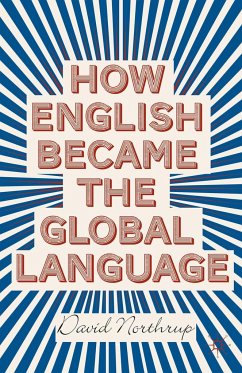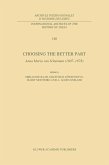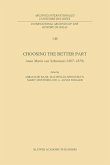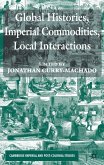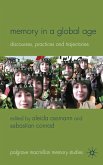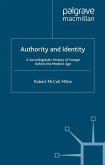In this book, the first written about the globalization of the English language by a professional historian, the exploration of English's global ascendancy receives its proper historical due. This brief, accessible volume breaks new ground in its organization, emphasis on causation, and conclusions.
"The global rise of English is a complex topic, and it deserves the kind of careful treatment found in Northrup's exceptional book. It will light the path for future studies of global English." - Muscat Daily "Languages spread as their speakers interact with other populations that become enticed or forced by various factors to learn and use them. They can travel long distances too, typically when they are associated with trans-territorial trade and/or colonial or imperial expansion. Bridging his expertise on colonial history with especially the ethnography of communication and the economics of language, David Northrup engages the reader in a very informative global account of the spread of English as the world's first truly 'global lingua franca.' An intellectually stimulating must-read for students of globalization and language, of language endangerment, and of world Englishes." - Salikoko S. Mufwene, The Frank J. McLoraine Distinguished Service Professor of Linguistics and the College, University of Chicago, USA "David Northrup presents a concise but broad and lively survey of the rise and spread of the English language over just under a millennium. A rather comprehensive introduction addresses disciplinary approaches to language, language history, layers of language, and shows how the English language got caught up in recent debates on imperialism. I believe this is quite an original work that will certainly draw attention and provoke wide discussion." - Patrick Manning, Andrew W. Mellon Professor of World History, University of Pittsburgh, USA
'Northrup convincingly demonstrates that linguistic dominance is neither cause nor consequence of cultural, economic or political hegemony; rather, the rise of global English is a complex story involving interactions among them all, and stems as much from the individual decisions of the dominated as from the policies of the dominant. How English Became the Global Language is a stimulating and worthwhile read in its own right, but is also a model for interdisciplinary approaches to complex social phenomena.' - Survival
"The global rise of English is a complex topic, and it deserves the kind of careful treatment found in Northrup's exceptional book. It will light the path for future studies of global English." - Muscat Daily
"Languages spread as their speakers interact with other populations that become enticed or forced by various factors to learn and use them. They can travel long distances too, typically when they are associated with trans-territorial tradeand/or colonial or imperial expansion. Bridging his expertise on colonial history with especially the ethnography of communication and the economics of language, David Northrup engages the reader in a very informative global account of the spread of English as the world's first truly 'global lingua franca.' An intellectually stimulating must-read for students of globalization and language, of language endangerment, and of world Englishes." - Salikoko S. Mufwene, The Frank J. McLoraine DistinguishedService Professor of Linguistics and the College, University of Chicago, USA
"David Northrup presents a concise but broad and lively survey of the rise and spread of the English language over just under a millennium. A rather comprehensive introduction addresses disciplinary approaches to language, language history, layers of language, and shows how the English language got caught up in recent debates on imperialism. I believe this is quite an original work that will certainly draw attention and provoke wide discussion." - Patrick Manning, Andrew W. Mellon Professor of World History, University of Pittsburgh, USA
"The global rise of English is a complex topic, and it deserves the kind of careful treatment found in Northrup's exceptional book. It will light the path for future studies of global English." - Muscat Daily
"Languages spread as their speakers interact with other populations that become enticed or forced by various factors to learn and use them. They can travel long distances too, typically when they are associated with trans-territorial tradeand/or colonial or imperial expansion. Bridging his expertise on colonial history with especially the ethnography of communication and the economics of language, David Northrup engages the reader in a very informative global account of the spread of English as the world's first truly 'global lingua franca.' An intellectually stimulating must-read for students of globalization and language, of language endangerment, and of world Englishes." - Salikoko S. Mufwene, The Frank J. McLoraine DistinguishedService Professor of Linguistics and the College, University of Chicago, USA
"David Northrup presents a concise but broad and lively survey of the rise and spread of the English language over just under a millennium. A rather comprehensive introduction addresses disciplinary approaches to language, language history, layers of language, and shows how the English language got caught up in recent debates on imperialism. I believe this is quite an original work that will certainly draw attention and provoke wide discussion." - Patrick Manning, Andrew W. Mellon Professor of World History, University of Pittsburgh, USA

